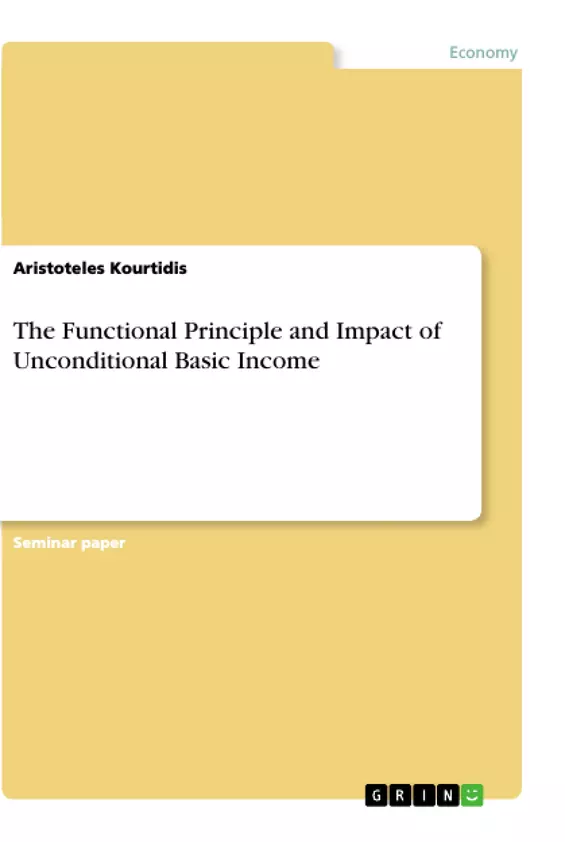“Without the freedom to make mistakes, people cannot learn to take control of their lives successfully.” These are the words of Guy Standing, a British economist and cofounder of the Basic Income Earth Network (BIEN). The BIEN aims to inform people
about what unconditional basic income (UBI) really is and how it works, based on scientific researches.
But what is the connection between a successful life, making mistakes and the UBI? Humans often assume, that unemployed people, for example are lazy or less intelligent. To confirm these prejudices, it is blamed that everyone has the same opportunities. Unemployed people just do not take these opportunities.
Nevertheless, life experience, education and social skills are not given by nature. Money is essential. People must pay for nearly everything that develops a personality or leads to equal chances. Making mistakes and learning from it is one part of this development, although not everyone has the financial space to try things and make mistakes.
The money that someone owns depends on the income that this person has. To earn money normally a job is needed, but getting a job depends exactly on the things, that make out a personality. To develop this personality money is needed. It is like a vicious circle that cannot be broken.
That is the moment, when the UBI comes into the picture. [...]
Inhaltsverzeichnis (Table of Contents)
- Introduction
- Problem Definition and Limitations of Research
- Objective and Organization of Research
- Definition and Inception of the Unconditional Basic Income
- Models for the Funding of Unconditional Basic Income
- Basic Income Flat Tax Model
- Transfer Limit Model
- Comparison of the Models
- Critical Comparison of Two Models of Unconditional Basic Income
- Solidary Citizen's Income
- Emancipatory Basic Income
- Critical Review of the Models
- Impact of Unconditional Basic Income
- General Impact of Unconditional Basic Income for the Population
- Reduction of Bureaucracy
- Work-related Impact
- Social and Psychological Impact
- Microeconomic Development as a Result of Higher Income
- Critical Analysis Based on Example Cases
- Example Case: Kenya
- Example Case: Berlin
- Conclusion
- Summary
- Outlook
Zielsetzung und Themenschwerpunkte (Objectives and Key Themes)
This seminar paper aims to explore the functional principle and impact of unconditional basic income. It analyzes different models for funding such a system and critically compares two specific models: the Solidary Citizen's Income and the Emancipatory Basic Income. The paper further examines the potential impact of unconditional basic income on various aspects of society, including bureaucracy, work, and social and psychological wellbeing. Finally, it provides a critical analysis based on case studies from Kenya and Berlin.
- Functional Principle of Unconditional Basic Income
- Models for Funding Unconditional Basic Income
- Impact of Unconditional Basic Income on Society
- Comparison of Solidary Citizen's Income and Emancipatory Basic Income
- Case Studies from Kenya and Berlin
Zusammenfassung der Kapitel (Chapter Summaries)
The introduction defines the research problem and outlines the paper's objectives and organization. The second chapter delves into the definition and historical development of unconditional basic income. The following chapter explores different models for funding unconditional basic income, including the basic income flat tax model, the transfer limit model, and a comparison of these models. Chapter four critically examines the Solidary Citizen's Income and the Emancipatory Basic Income, presenting a comprehensive review of their strengths and weaknesses. The fifth chapter examines the general impact of unconditional basic income on the population, including its implications for bureaucracy, work, and social and psychological well-being. Chapter six focuses on the microeconomic development potential of higher income levels through the analysis of case studies in Kenya and Berlin.
Schlüsselwörter (Keywords)
The primary keywords and focus topics of this paper are: unconditional basic income, funding models, solidary citizen's income, emancipatory basic income, social impact, work-related impact, microeconomic development, case studies, Kenya, Berlin.
Frequently Asked Questions
What is Unconditional Basic Income (UBI)?
UBI is a periodic cash payment delivered to all on an individual basis, without means test or work requirement, to ensure a basic level of financial security.
How can a basic income system be funded?
The paper discusses various funding models, including a flat tax model, consumption-based taxes, and transfer limit models.
What is the difference between Solidary Citizen's Income and Emancipatory Basic Income?
The solidary model often focuses on social cohesion within existing structures, while the emancipatory model aims for a fundamental shift in power and individual freedom from forced labor.
What are the psychological impacts of UBI?
Research suggests that UBI can reduce stress, increase social well-being, and provide the "freedom to make mistakes," which is essential for personal development.
What have case studies in Kenya and Berlin shown?
These examples analyze how higher income levels through UBI affect microeconomic development and individual life choices in different socio-economic contexts.
- Quote paper
- Aristoteles Kourtidis (Author), 2019, The Functional Principle and Impact of Unconditional Basic Income, Munich, GRIN Verlag, https://www.grin.com/document/542897



